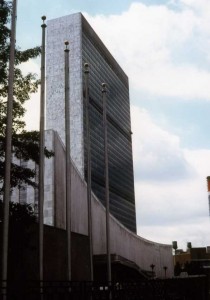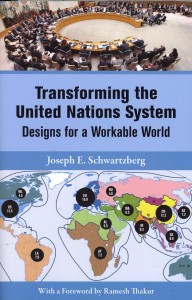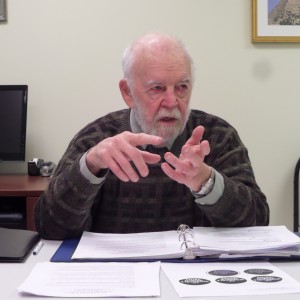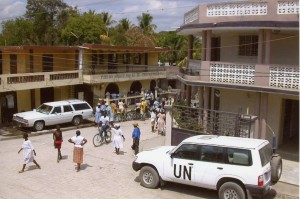#979 – Dick Bernard: The Paris Attacks. An Opportunity, Once Again, to Learn, including from the Past.
In the annals of humanity there have always been unspeakable tragedies perpetrated by human beings, one or more against others. The increasing sophistication of instant world-wide communication about everything, including atrocities, may be a blessing, but can be a curse as well. We have to be wary of being manipulated; to slow down, and try to make calm, reasoned assessments of apparent realities.
(click to enlarge)
Thursday’s Minneapolis Star Tribune main front page story caught my interest: “TERROR SHOCKS PARIS” with two subheadlines, “IN EUROPE Attack is likely to fuel anti-Islamic sentiment” and “IN PARIS 1 gunman surrenders, huge hunt for 2 more”. Most of the content of five of the twelve pages of the world news section were dominated by the story about the killing of a dozen people by two brothers and a third person.
The Saturday paper brought news of a second attack in suburban Paris, with lots more printers ink.
Twenty people (including the killers) lay dead in the Paris metropolitan area of over 12 million people. Paris is one of Europe’s largest cities, and truly one of the worlds most ancient and celebrated cities.
I wrote an e-note of support to a good friend of mine, Christine Loys, whose home is Paris. Her reply*, printed below with her permission, does not need editorial comment except that she asked me a question which I have answered.
There is nothing remarkable about the tragedy in Paris this week. Examples of similar past tragedies are abundant: for instance, two years ago, 20 school children and 6 adults in a school in a prosperous suburban community were killed by a crazed gunman (Newtown CT). In 1999, 12 students and one teacher at Columbine High School in Littleton CO were killed by two fellow students, who subsequently killed themselves as well.
A complete list would go on and on and on.
The trial of the Boston Marathon bomber is now beginning….
Each time such crises happen, a great deal of attention is paid to them as a spotlight shines on them; then life goes on, until the next tragedy, which will certainly happen somewhere, for some reason.
Each time much effort is exerted to attach meaning to the madness – whose fault is it, who can be blamed. What is worse, as is happening now, is that the tragedy is used as an opportunity to organize around one’s particular belief.
But in the end, we usually seem to learn little or nothing from these truly isolated tragic episodes, and we could learn so much. The overwhelming vast majority of us are good people, who can make the needed changes, where we live. But mostly we don’t, and won’t, for reasons each of us know within ourselves (“I can’t do anything about it….”, etc. etc.)
Over 40 years ago, at a workshop I attended, the instructor distributed a handout which I have always found instructive at times such as this. It was called Crisis Sequence, and the original version appears below (click to enlarge).
Time after time in those 42 years I’ve seen the applicability of this chart to any number of Crisis situations, the most dramatic being 9-11-01. As we so well know, especially from 9-11-01, such Crises can be exploited easily, and take on a new life of their own.
Almost every American approved the bombing of Afghanistan in 2001: Afghan War Oct 2001001. History everywhere is full of examples of excessive response to such tragedies.
In my opinion, those who are shocked by what happened in Paris this week (which is all of us) should spend time learning from Paris, and all the other crises we have experienced during the “media age” in which we are immersed. There are many lessons we can learn, and they are immersed in that old handout reprinted above. Then, as Gandhi said, we must become the change we wish to see in the world.
* Here’s Christine’s comment from Paris, received earlier today:
“[Y]ou will be surprised that ALL of us Parisians were deeply traumatized first by the assassination of the artists from Charlie Hebdo on Wednesday morning (they intended to kill freedom of speech, freedom of the press, freedom of talking…no less) and then by the hostages double drama that took place 48h later on Friday that ended up with 20 people killed !!! My friends and my family, at work or from home could not do anything else than follow the events on television or radio, live…we all were talking on the phone to each other at the same time. It has been a horror time with much fear… Children did not go to school when possible and people did not work or move from home when it was possible not to. I went to do some grocery shopping close by on Thursday afternoon and there was NOBODY in the streets of Paris… I felt like in a horror movie, quite frightened by the silence. Sales people in the cloth shops were expecting a huge amount of people for the sales, (it was the first day, usually the most crowded) but there was no customers….. Unbelievable….
Now all is over but it remains a very uncomfortable feeling of uncertainty, that it could start again anytime anywhere….
The authorities say that we should not enter into psychosis but it affects all of us in every way…. The trouble is that at the same time they say that they know it is going to happen again soon and we need to be prepared….. How would you react?”
Christine asks, “How would you react?”
I’m not sure how I’d be reacting now, if Parisian, and in Paris. It is doubtless a very traumatic happening, threatening personal safety.
I do know that my son and family lived one mile from Columbine High School when the student gunmen attacked the high school in 1999, and I was certainly concerned about my granddaughter who was then 13. A week later I was with them walking up “Cross Hill” above Columbine. So I guess I joined a “demonstration” of sort, out of grief for and solidarity with the victims and their families and community. (Originally, someone had put up 15 crosses on Cross Hill, including the killers, but someone else had torn down those two crosses. It was unfortunate that the two crosses were removed.)
Christine’s words remind me of American reaction to 9-11-01, beginning immediately after 9-11-01, I felt we Americans had grossly overreacted in our response to the tragedy of 9-11, and our collective grief was exploited and manipulated, much to our detriment (first the Afghanistan, then Iraq, Wars the prime, but by no means only, examples). In effect, a large tragedy (9-11) was magnified and we and others have suffered from the effects of misuse of this tragedy ever since.
In fact, I wrote about 9-11 then, immediately after the attacks: Post 9-11-01001. Now, more than 13 years after 9-11, I would say the same things I did then.
POSTSCRIPT Jan. 11, 2014: Perhaps my bottom-line worry for France and all of us remains as I expressed in two very short essays about the U.S. after the tragedy of 9-11-01. They remain accessible here.
POSTNOTE Jan. 12, 2014: My favorite blogger, Alan of Just Above Sunset, who I’ve always gathered considers Paris a favored city, summarizes world views on the situation, here.
COMMENT
from Stephanie, Jan 12: It has been a horrible time indeed for the French and for the entire world. What is the answer? I don’t know.
Close friends of mine live in Montrouge, where the policewoman was killed. I spoke with them last week. They had gone to pick up their grandchildren at school, which they do every Thursday. The kids, ages 6, 8 and 9, were hyper…their teachers had told them all about what was happening, even that Kalishnokovs were the weapons of choice. Needless to say the grandparents, both retired educators, were not pleased.
My dear friend Marie-Christine was at Porte de Vincennes, picking up her granddaughter at preschool just prior to the massacre at the grocery store.
The sister-in-law of another friend lives at Porte de Vincennes and shops often at the take-out shop next to the grocery store.
I wrote to a cousin who lives in a Paris suburb not far from Montrouge. She replied
“En effet ces événements nous ont tous choqués, mais ce qui est rassurant est que les français se sont montrés très solidaires dans leur réaction ainsi que de nombreux pays étrangers. ”
(These events have shocked us all, but we are comforted by the fact that the French are very united in their reaction, as well as so many foreign countries.)
When I was in Paris in August I saw a man on the street who was wearing a yarmulke. He was about 40 years old. I asked if he felt in any danger or if he felt his head covering made him a target. He said no. He said he usually doesn’t wear a yarmulke but was on his way home from Saturday morning prayers. I have made it a habit to try talking to people in France who are identifiably Jewish, either because they are wearing a yarmulke or a Star of David. None has expressed a desire to leave their home in France to move to a foreign country. Some have said they feel that anti-Semitism is on the rise. I guess I think that in the US there is a rise in intolerance and anti-Semitism, so this is not a surprise to me.
I don’t have any confidence on our intelligence community or, for that matter, that of any country. Radicals are going to continue…when you don’t fear death and think you are right you can and will do anything. I have plans to go to Australia Feb. 2-26. My family doesn’t want me to go…but I will. Who would have thought that 9/11 would have happened? Or the bombing in the Canadian Parliament? Or in a café in Sydney? Is there any safe place? I don’t think so.
Sorry this is not a happier e-mail.
from Emmett, Jan. 14: Very interesting write-up and perspective. I try not get too wrapped up in this stuff. I can’t remember if I have told you that I am attempting a book on religion, but I am finding the greatest challenge is dealing with the “H” word, Hypocrisy, which runs rampant around the world. We have Israel and other countries represented in the marching in that parade in France who are known to have assassinated journalists. And just a few months ago, Israel bombed a Christian Church and three Mosques and a UN shelter in Gaza, killing around 500 Christians and another 1500 Islamic Palestinians, 700 of total being children. And all that after being told over a dozen times by the UN that these facilities were designated shelters for the besieged Palestinian civilians. I didn’t remember any parade of world leaders after that tragedy. So I just go about my life focusing of my charity work, my attempts at writing a book, and my scientific presentations to inspire students to pursue science and pretty much ignoring all the propaganda that is broadcast on the news channels.
Final Postnote, Jan 15: I try to keep tabs on Paris from afar. It appears that, so far, the general French reaction, public, government and otherwise, is similar to what happened in the United States in 2001. The Crisis Sequence model (above) holds true, as one would expect it would. We are all people, after all, in whatever country we live, whatever our ethnicity, language, nationality….
Hopefully, cooler heads will prevail there, and war fever doesn’t infect them, as it did the U.S. back then. There are no winners in such angry reaction. Especially today, who do we kill to get revenge?
The “War on Terror” as envisioned by U.S. government leaders in and even before created a monster for all of us.
It began with the stupid definition of “Axis of Evil” by the Bush administration, and continued with a so-called “Coalition of the Willing”, where there was a defined enemy, a country, specifically a leader of the country, to be taken out.
Back then, France was derided because its leaders weren’t sufficiently enthusiastic about going to war. The U.S. House of Representative passed a stupid motion renaming French Fries in their cafeteria as “Freedom Fries” (I wonder if they’re still so named.)
We all know how the War on Terror has turned out. Rather than erradicating “terror”, we have institutionalized it; we have empowered rather than eliminated its proponents.
Now any lunatic, anywhere, can disrupt and confuse entire populations, such as the killers in France did last Wednesday and Friday. A country goes paralyzed, as ours was in the fall of 2001 (and in too many ways still is). At some level, I’d guess, we all know what we did to ourselves by our national response to 9-11. Humans being humans, we won’t admit it.
There is need for change, and it won’t happen at the highest political levels, in my opinion. It is individuals and small groups in the countries of the world who will change things, not a few Presidents standing in solidarity for photo opportunities; or idealogues of all stripes attempting to fashion the crisis to fit their own ideology. Even in these few days following the attacks in France, there have been endless examples of this manipulating of a reality to fit a narrative.
After September 11, 2001, we Americans had a choice of two forks in the road ahead: to make things better, or make things worse. We chose the wrong alternative, in my opinion, attempting to beat the rest of the world into submission by our awesome power (which turned out to be not so powerful). Too many of us continue to deny reality: our feeling of superiority masks the reality of our own self-imposed impotence. We are part of the world, not apart from it.
(I keep thinking about one factor that contributed mightily to our governments course of action after 9-11. A few years earlier a bunch of influential people developed what they called the Project for a New American Century (PNAC), in which the U.S. would dominate the world. In my opinion, PNAC was used to implement our response to 9-11. 9-11-01, however it came to happen, was very useful to powerful American political leaders at the time.)
The website for PNAC has been suspended, which is why I link to Wikipedia, but the Wikipedia entry gives a good history, including the listing of the influential framers of the document: people like Dick Cheney and Donald Rumsfeld, key architects of the War on Terror. It is useful to relook at this piece of our own history. A good short summary of this time in history can be seen in the latter half of my January 1, 2015, post on the United Nations. See Dr. Joseph Schwartzberg’s comments headed Plan C, and note especially Plan B.
Personally, I have one relic of 9-11-2011 in my office, and a big file of materials kept from the time of September 11.
The relic is a drawing of an American flag made by a 5th grade boy, Lester, in a suburban Minneapolis school in early October, 2001, during the time that teachers everywhere were helping their students talk about what happened on September 11 through all of the means that teachers use.
Here’s that flag Lester drew that day. He would now be 19 or 20. I wonder what has happened to him since….
Let’s work for a better world. It will take each of us to accomplish that better world.
President Obama to France? Had President Obama gone to France, he would have been criticized; had he sent someone else to France, he would have been criticized. Personally, I saw no reason why he would go to France; indeed, I found it to be respectful of the French themselves. There was no need for our President to be there. I don’t recall world leaders coming to the U.S. at the time of 9-11-01 even though many countries lost citizens in the Twin Towers in particular. In fact, at the time, my guess is that the U.S. administration would have preferred to have no one sharing the stage with them. After all, as pointed out above, we were led by people who wanted the U.S. to be the sole super-power in the world. Personally, I like the commentary of President Carter on the topic earlier today. You can read/watch it here.





















